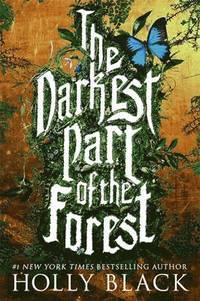The Case of Howard Phillips Lovecraft by Marcus Sedgwick
Very few writers can truly be called unique; American horror
stylist H.P. Lovecraft is surely one who can. Lovecraft, never a success in his
own lifetime, and barely more than a cult figure since, is nevertheless one of
the most influential writers of the 20th century. The same can be
said of the writer whose work in turn most influenced Lovecraft, Edgar Allan
Poe. Poe’s work was perhaps a little wider read than Lovecraft’s ever was
during their respective lifetimes, but Poe’s nevertheless was derided and
belittled while he was still around to hear such things. Only in France, for
some reason, was Poe truly celebrated, and outside of that it’s been the sad
fate of these men to only achieve their true worth after their deaths.
If you don’t know Lovecraft’s work, a few titles will begin
to give you the idea: The Shadow out of
Time, The Dunwich Horror, At the Mountains of Madness, The Dreams in the Witch
House. But these are no conventional horror tales; Lovecraft not only
created a style all of his own, he also created an entire occult mythology for
the world in which some of his tales are set. His pantheon of hideous ancient
gods; the Old Ones, Cthulhu being the most notable, are painted as being
horrible dark influences on humanity from times before our imagining and places
beyond our understanding.
Lovecraft created his own corner of New England; Arkham,
Dunwich, Innsmouth, the Miskatonic river as the diabolic centre of unnameable
terrors and lurking creatures, drawing upon (modern) America’s oldest places as
his inspiration for twisted versions of reality. Here, we find decrepit houses
touching eaves across foetid alleyways, we find unknown and unknowable things
sliming their ways from murky harbours, and time and time again, we find
madness. Madness was one of Lovevcraft’s recurring themes. His own father was
confined to a mental hospital when Lovecraft was just three years old, possibly
suffering with General Paralysis of the Insane (as it was known then) – the
tertiary stages of a syphilitic infection.
It’s hard not to see this as a direct influence on the writer, a writer
whose own life was riddled by ill health and strange behavioural issues.
In coming to write the section of The Ghosts of Heaven known
as The Easiest Rom in Hell, I decided I wanted to pay homage to a writer whose
work I have always enjoyed. This part of the book is set in an insane asylum on
Long Island, New York in the 1920s, and features a poet who has gone mad. His
name (and Lovecraft fans will know why) is Charles Dexter. Dexter spends his
days writing a novel in his head,
much to the confusion of his doctors. He strikes up a friendship with a newly
arrived Dr James, who hasn’t heard of the poet before. When he learns about his
writing, he gets hold of a copy of Dexter’s poetry collection, On Drowning, and reads one of the mad
poet’s poems. And here then, was a chance for me to let rip and write some
Lovecraftiana of my own; the poem called...
Poquatuck
Sea-found, wind-worn and wild;
the land will lose.
Here are places so old as to defy memory;
The point, the creek, the inlet.
The old tide mills, dilapidated,
were but a blink in the eye of time.
And there are older things here,
things which the oyster boats dredge from the deep.
There on the headland;
the asylum,
and the asylum boneyard,
where the land-borne dead are corrupted,
harmless bodies are sucked of life;
in the cemetery.
Graves grow from the soil;
the black fingernails of the monstrosity beneath.
It lies far down, under the ground, under the sea,
pushing an arm up,
up to the air
a hand with a thousand fingers; and every fingernail a
grave.
Deep in the sea, at the other
end of the arm
sits its heart-brain,
this being from beyond the stars, from the beginning of
time:
its mashy form quivers inside the shell
which protects
and resonates its thought-waves across the world
in ancient reverberation.
Spiral-set shell mind,
It blows a soundless horn to us all, a warning:
I am coming.
Check out Marcus' latest book The Ghosts of Heaven
Blurb:
The spiral has existed as long as time
has existed.
It's there when a girl walks through the forest, the green air clinging to her
skin.
There centuries later in a pleasant green dale, hiding the treacherous waters
of Golden Beck that take Anna, who they call a witch.
There on the other side of the world, where a mad poet watches the waves and
knows the horrors they hide, and far into the future as Keir Bowman realises
his destiny.
Each takes their next step in life.
None will ever go back to the same place.
And so their journeys begin...
THE GHOSTS OF HEAVEN by Marcus Sedgwick published by
Indigo on 2 October 2014
About
Marcus Sedgwick
Marcus Sedgwick is a full time author. His
first novel, FLOODLAND, won the BRANFORD BOASE AWARD for the Best Debut
Children's Novel of 2000. Since then his books have been shortlisted for the
GUARDIAN CHILDREN'S FICTION PRIZE, the BLUE PETER BOOK AWARD, the COSTA BOOK
AWARD, the CARNEGIE MEDAL and the EDGAR ALLAN POE AWARD. His previous novel,
MIDWINTERBLOOD, won the 2014 MICHAEL L. PRINTZ AWARD. He lives near Cambridge.

















